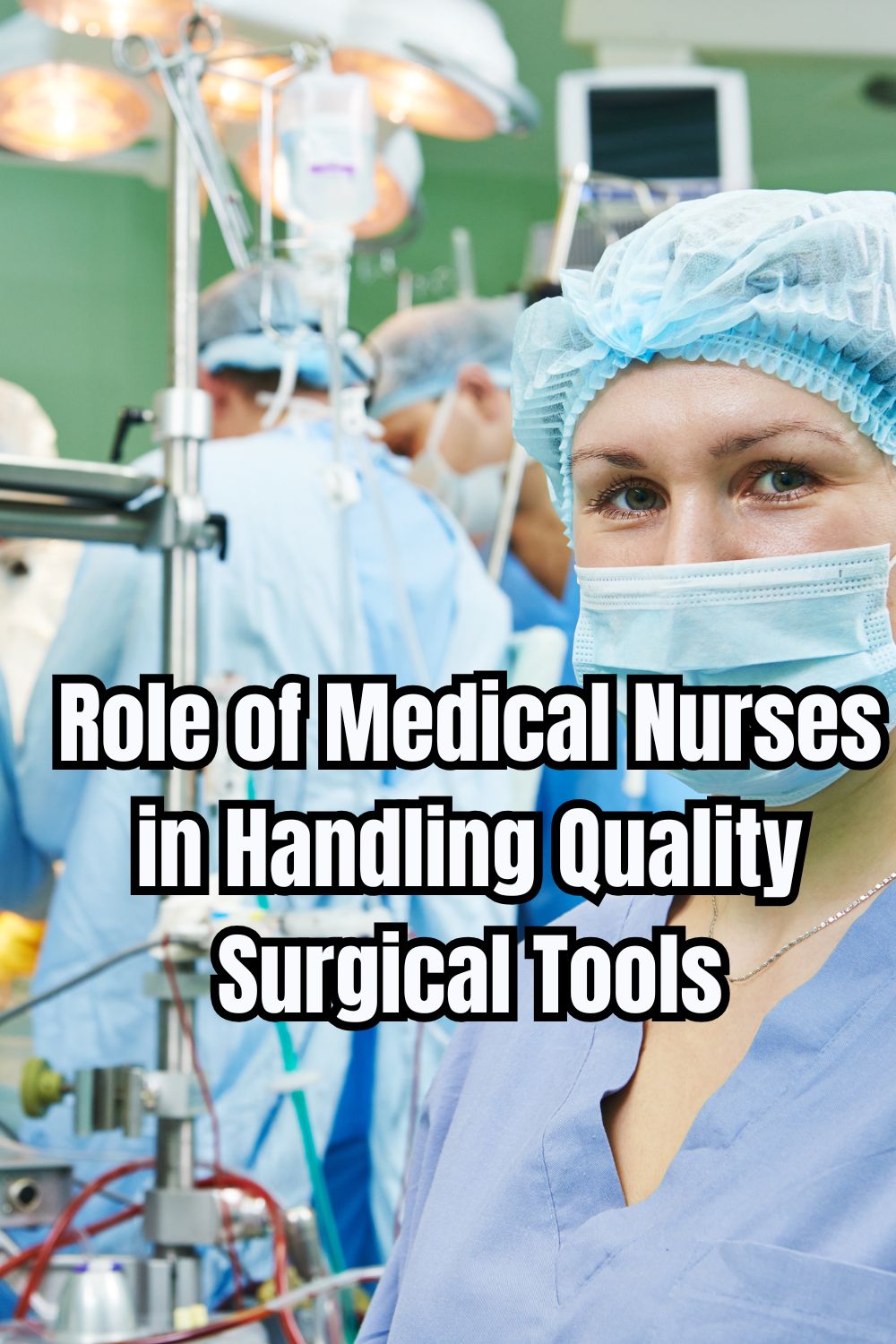Are you looking for the role of medical nurses in handling quality surgical tools? Find out more information on it.
Role of Medical Nurses in Handling Quality Surgical Tools
Surgical instruments are necessary in any operating theater and are a critical element for the success of surgical procedures. But medical nurses are even more crucial since they have to ensure that these tools are prepared, used, and cared for properly.
The intent behind manufacturing a good surgical instrument is to ensure efficiency and quality and reduce the chances of complications.
This post will discuss the role of medical nurses in handling high-quality surgical tools and their surgical skills, which can lead to successful procedures.
Importance of High Quality Surgical Tools
Surgical instruments can cut, dissect, hold, grasp, and manipulate various parts of the internal biological structures, including, skin, tissues, ligaments, and organs.
Surgeons with decades of experience may have to struggle with the task if they do not have access to the necessary tools. However, the quality of these tools is equally important.
Only quality manufacturing of surgical instruments can maximize safety and minimize the potential for trauma and infection to tissue. Medical nurses play a crucial role in this, so they show great concern for surgical instruments.
How Medical Nurses Handle Surgical Tools
Medical nurses interact with surgical instruments on multiple occasions. Their participation in surgical procedures is critical, from acquiring the tools to cleaning and restocking them after surgery completion.
Pre-surgery Preparation:
- Nurses are responsible for preparing the surgical instruments according to the procedure’s specific needs. This includes cross-referencing checklists to avoid missing tools.
- Sterility is crucial. Nurses ensure sterilization of every surgical tool before use, reducing the risk of infections.
During Surgery:
- Nurses hand over the required tools to the surgeon during the procedure. They need to understand the order and types of instruments needed in different stages of the surgery.
- Ensuring no essential tool is missing is the top concern. In this regard, medical nurses also keep track of tools during surgery.
Post-surgery Duties:
- After the surgery, nurses are responsible for thoroughly cleaning and maintaining tools to keep them in optimal condition for future use.
- Regular inspections identify signs of wear or damage, ensuring tools remain sharp and functional.
Ensuring Surgical Instruments Are in Top Condition
Nurses don’t just use surgical tools; they protect and maintain them.
Ensuring the longevity of surgical instruments requires:
Frequent inspections help detect any early signs of damage or rust.
- Safe storage
Nurses are trained to store medical tools properly to prevent damage.
- Prompt repairs
Any damaged or dull instruments should be flagged for repair or replacement to avoid any surgical complications.
Impact of Nurses in Preventing Surgical Complications
Medical nurses directly deal with surgical instruments, which have tremendous effects on the patient’s safety.
Using the appropriate instruments, as well as the established methods, nurses help lower the risk the complications caused by surgical tools, such as infection or hematoma. Caution for maintaining the quality of these tools is not a routine; it is an integral part of the surgical service.
Why Attention to Surgical Instruments Matters
Handling surgery instruments with care isn’t just about following a checklist. The meticulous attention nurses give to the tools impacts the overall quality of surgery.
Here are a few reasons why this attention matters:
- Proper sterilization and handling ensure tools are safe for patient use.
- Sharp and well-maintained instruments allow surgeons to perform precise procedures, leading to faster patient recovery.
- Proper handling reduces the need for frequent tool replacement, saving hospital costs.
Advancing Surgical Tool Management Through Technology
New advancements improve the overall management of surgery instruments, allowing nurses to focus on patient care without worrying about tool errors.
- Automated Sterilization
Efficiently disinfects surgical tools, minimizing human error.
- Inventory Tracking Systems
Ensures the right tools are available for procedures, reducing misplacement.
- Real-time Monitoring
Tracks tool usage and condition during surgeries for optimal functionality.
- Predictive Maintenance
Alerts when tools need maintenance or replacement to prevent failures.
- Time-saving Automation
Reduces manual tasks, allowing nurses to focus more on patient care.
Experience Quality Surgical Instruments
Nurses are the unsung staff in the surgical room. They’re not just assistants—they’re vital in making surgeries successful.
If you need high-quality surgical tools, GerMedUSA is one of the most reliable sources to prefer. Their instruments are manufactured from German stainless steel and tested for precision and durability. They have been in the market for over three decades and have earned the customers’ confidence by maintaining quality and pricing.
FAQs
Why is it essential for medical nurses to maintain surgical tools?
The roles of nurses in ensuring the sterilization and readiness of medical tools are indispensable. The maintenance of the tools also helps prevent infection and surgical complications during procedures and afterward.
What happens if surgical instruments are not properly maintained?
Without proper care, tools can transmit infections, increase healing time, and even lead to surgical complications. Regular monitoring and updates are very important steps that guarantee patients’ security.
How do new technologies help medical nurses in managing surgical instruments?
Technologies like automated sterilization systems and tool tracking software make it easier for nurses to manage surgical instruments efficiently, improving overall patient care.

Leave A Reply!